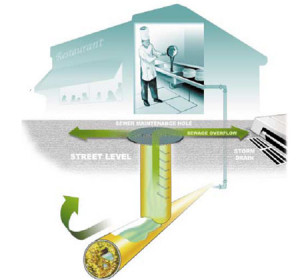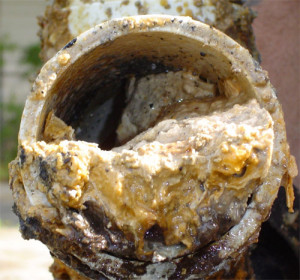FOG in our sewers
 Sewage backups and overflows are typically the result of fats, oil and grease being introduced into the collection system from private residences that do not capture their grease after food preparation such as putting waste down the sink disposal and washing dishes with out cleaning out excess fats, oil or grease.
Sewage backups and overflows are typically the result of fats, oil and grease being introduced into the collection system from private residences that do not capture their grease after food preparation such as putting waste down the sink disposal and washing dishes with out cleaning out excess fats, oil or grease.
Domestic sewer blockages can cause property damage, environmental problems and other health hazards. Fats, oils and grease also get into the sewers from commercial food preparation establishments that do not have adequate grease control measures in place such as grease interceptors.
Most grease is the byproduct of cooking and is usually found in such things as:
- Food scraps and meat fats
- Lard and cooking oil
- Butter and margarine
- Baking goods
- Sauces
- Dairy products
Over time, fats, oils and grease builds up and eventually blocks the entire pipe causing sewage backups and overflows.
 The Costs to Your Business:
The Costs to Your Business:
As your sewer pipes back up, sewage and food particles that accumulate can attract insects and other vermin and may create potential health hazards.
The Costs to the Environment:
Clogged sewers can lead to overflows. As sewage overflows onto streets, it enters the storm drain system where the sewage is carried to our local lakes and streams, creating a health risk for swimmers, marine life and causing lake and park closures.
The Costs to the City:
Increased sewer blockages and overflows lead to excessive and costly maintenance and can result in severe fines from regulatory agencies. This can increase your sewer fees.
Steps for Fat, Oil and Grease Free Sewer Lines
The following tips can help you in reducing FOG in the sewer system
- DO NOT dump cooking oil, poultry fat, and grease into the kitchen sink or toilet.
- DO NOT use hot water and soap to wash grease down the drain. It will cool and harden in your pipes or in the sewer down the line.
- DO place cooled cooking oil, poultry and meat fats in sealed, non-recyclable containers and discard with your regular garbage.
- DO NOT use cloth towels or rags to wipe greasy plates and/or dish water. When you wash them, the grease still ends up in the sewer.
- DO use paper towels to wipe residual grease or oil off of dishes, pots and pans before washing them
- For big apartment buildings and food service establishments, DO install grease traps or interceptors as required by your local regulatory agency and make sure they are always in good working order.
- DO NOT put food scraps down the garbage disposal. It does not remove the grease, but instead only makes the pieces smaller. Even non-greasy food can clog your sewer line.
These precautions will help reduce FOG in the sewer, protecting public health and safety, and reducing sewer system maintenance and cleaning costs.








